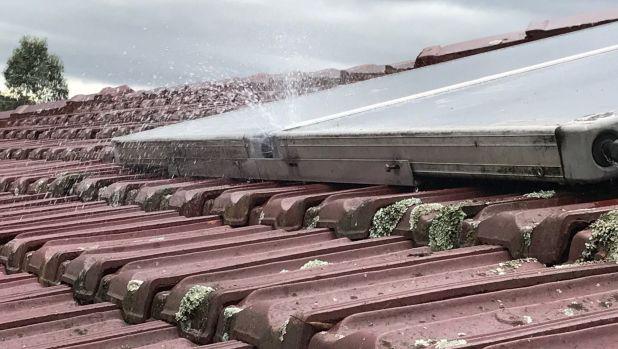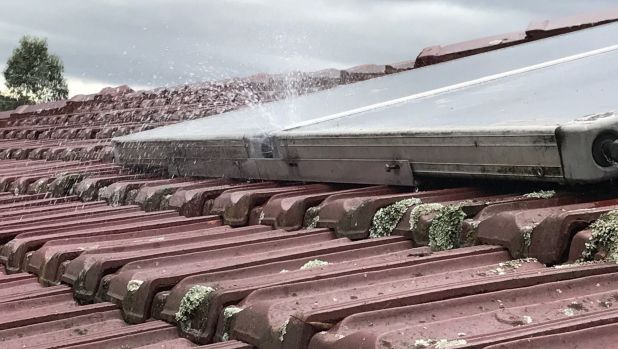The recent frosty winter in Melbourne has plunged solar hot water panel owners into financial difficulties with thousands of dollars of plumbing bills to clear. The bursting and splitting of the solar hot water panels after a frosty winter weekend left plumbers overwhelmed with the unprecedented demand for their services even as temperatures dropped to minus 5 degrees.
A plumber based in Lilydale Melbourne’s west said they were struggling to keep up with the need and had to attend to eight jobs during the weekend. The area around Melbourne recorded sub-zero temperatures, including minus 2.5 degrees at Viewbank and minus 5.3 degrees near Lilydale and in Coldstream. The cold snap froze water in panels, causing them to expand and split, a scenario that led to broken panels and frost valves.
The owner of John Willis Plumbing in Lilydale where temperatures fell below zero said he had a busy weekend with many broken solar panels, and quality differed among manufacturers.
“There are various manufacturers of them, and some of them aren’t really up to the job of the frost.”
“The lady I went to yesterday tried to get in contact with the people that had put the system in for her and they were deregistered and had gone out of business.”
“There were two panels on the roof and both had split with the frost.”
Another plumber from S.A. Edwards Plumbing in Eltham, Mr Scott Edwards said the demand was just overwhelming and he couldn’t keep up with it within a weekend.
“I’ve just left one job and I’m going to another now. This generally doesn’t happen every winter, just when we get bad frost like over the weekend.”
Mr Edwards noted that superior quality solar hot water panels that come with a glycol antifreeze system were generally more long lasting than the cheaper models most builders prefer.
“There definitely has been one lot of units that I’ve done more of than others. Generally the ones that are bursting more often than not are the base model that builders put in.”
Simon Marchione associated with the Keilor Downs based All Sorted Plumbing said he had handled eight solar panel tasks over the weekend and the cost of replacing split panels had shot to about $2500.
“I’ve never seen anything like this,” he said.
“There’s a device on solar hot water panels called frost valves. They allow a bit of expansion in the panel itself by allowing water to drip out of the panel. But we’ve seen panels with frost valves installed where it’s still happening.”
“I don’t think it’s a quality issue. It’s more or less I don’t think anybody expected for Melbourne to be so cold. They really aren’t made for our changing climate.”
Mr Marchione added that the damaged panels he repaired did not cause any damage to buildings and only resulted in leaking water on roofs. Notably, the Victorian state government has been offering rebates of up to $1600 to homes that choose to convert to solar hot water systems under the Victorian Energy Efficiency Target (VEET) scheme. The scheme has been in operation since 2009.
In 2008, the Rudd government offered rebates worth $8000 to households that installed solar power panels but got rid of the scheme because of the soaring demand. This rebate formed part of the Energy Efficient Homes Package which unfortunately featured a controversial home insulation program that led to the death of four workers.



